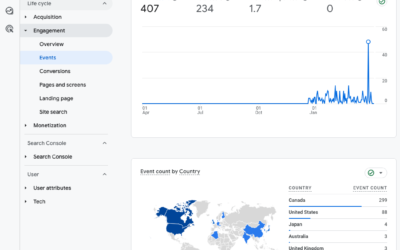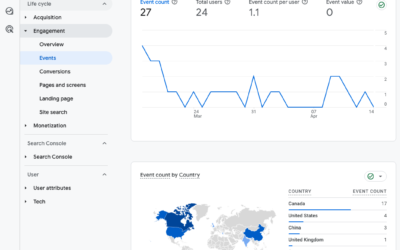Marketing attribution for ecommerce is the great promise that many organizations are still trying to achieve. We have the data. We know there are different attribution models and that last-click attribution sucks. But why is it so hard to get a complete view of your marketing performance?
First, you need to focus.
It can be tempting to report on everything, but then your marketing reports become meaningless data dumps.
As Avinash Kaushik says, smart analytics dashboards offer insight and action. Aim for reports that offer end-to-end impact (reports that show acquisition, behaviour, and conversion metrics). And ideally, your marketing team is reporting on observations, insights, and actionable next steps.
Second, you need agreed upon marketing KPIs.
Marketing KPIs are the measurable ways we demonstrate the effectiveness of marketing campaigns. These are success metrics that business leaders want to see. What indicators, related to marketing touchpoints, are most important when it comes to driving conversions? I'll pop in some example success metrics below.
Third, you need to connect marketing data from across multiple channels.
Data from Shopify, MailChimp, Google Ads, Instagram, Facebook, Pinterest, Twitter, and more needs to be compiled to see the full picture of what's happening online. How does your audience become aware of a new offering? What channels or content attract their attention? When they purchase what impacts that decision?
Tip: Use Data Studio to connect your data into interactive dashboards.
Make sure your marketing KPIs focus on Success Metrics.
Success metrics are the 2-3 top-level metrics that ultimately identify success. These metrics are directly related to business goals and are the agreed upon KPIs that business leaders want to see in reports:
Basically, revenue + things that lead to revenue.
Now marketing is a contributor to sales so what we are really reporting on is the ability of marketing campaigns to contribute to sales.
- Look specifically at Marketing-Attributed Sales Volume. You can use your Shopify Marketing reports to see Sales Attributed to Marketing.
- I would also look at sessions and per session value. In Shopify use the Sessions Attributed to Marketing report to see the number of sessions on your site that are a result of marketing, such as a UTM campaign, Google ad, Instagram or Facebook ad.
Not a Shopify user? Here's how to track your marketing campaigns in Google Analytics.
In book publishing, the ecommerce sites that I monitor tend to see same-day conversions. Traffic comes and during that same visit, about 1% purchase.

For reporting on awareness and consideration, I prefer the Google Analytics > Acquisition report or a custom report that shows
Source, Users, Pages per Session, and Per Session Value.

And for those companies actively using social media to generate awareness and consideration, have a look at the Google Analytics report Acquisition > Social > Overview

The overview graph shows sessions via social referral and provides context for conversion contributions from social. Most publishers see social media contributing to about 10% of ecommerce conversions.
Also typical, as you can see in the custom report above:
- Email converts the highest and is underutilized.
- Referral traffic from media and influencers is a worthwhile investment.
- Organic search is almost always at the top in terms of revenue, yet there's a skills gap when it comes to publisher expertise in SEO.
Ultimately, your boss wants to know: Are your marketing campaigns working? Are you spending your time and resources wisely? A good marketing report provides that answer.



